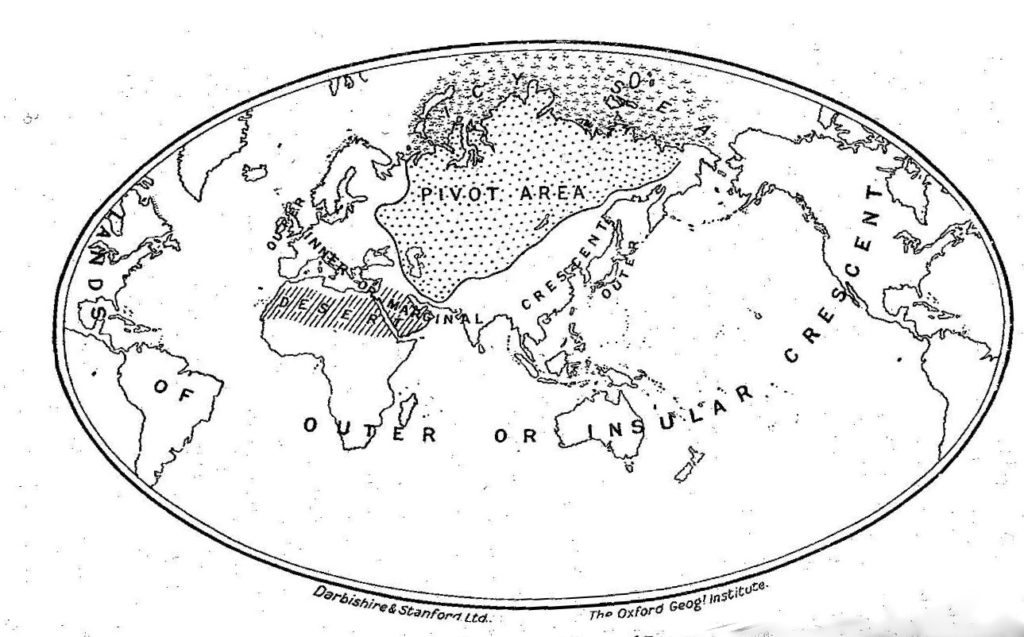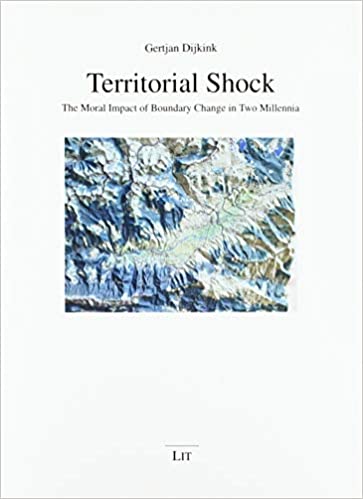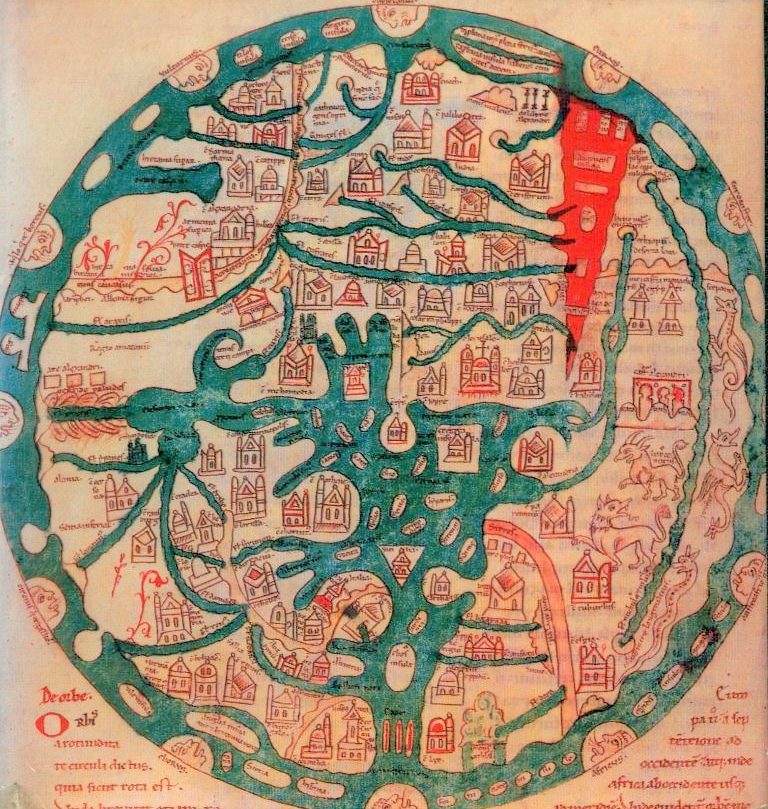A geopolitical or territorial order is a relatively stable geographical strategy for exercising power. This may simply amount to creating states but also to a global balance between power blocs. The classical geopolitical schools which emerged at the end of the 19th century focused on the balance between land and sea-power, more precisely the balance between on the one hand the British Empire (including America) and on the other potentially strong powers on the Eurasian continent. ‘Crisis’ in that context meant the possible rise of a continental superpower (like Germany or Russia) that would be able to dominate the world by its large maritime access (see map Mackinder). The rise of China as a new superpower challenging the dominance of the US may be considered the current manifestation of a crisis disturbing the geopolitical balance.

Though, balance? Isn’t the rise of a power that counterpoises the single dominance of the US precisely the creation of balance? Only if we are prepared to call any disturbance of an existing power configuration a crisis may we label the rise of China as such. But that would undermine its original meaning. However, there is a different way to talk about current geopolitics as something in crisis. Since the allied victory in World War II, the US has been the powerful benefactor of a multilateral and supranational world order which it seems to have increasingly betrayed under the guidance of President Donald Trump. It is this geopolitical (or territorial) order that is in crisis.

In my book ‘Territorial Shock’ (LIT Verlag 2019) I have attempted to look at territorial order as something in which the state that we know today is not taken for granted. That means: the state as an autonomous building block in which governance, borders and national identity are amalgamated into a solid natural entity. Using this state concept to describe age-long geopolitical change leads to false history. Earlier geopolitical orders were based on empires and dynasties. Not until the early 19th century the idea of the state developed into that of a common identity (almost experienced as a genetic code). Every shift to a new territorial order (from empires to states etc.) caused a mental confusion. Such crises were overcome by adopting new attractive values: the early modern state and its monarch could just as well account on God’s blessing as the fading Holy Empire, the classes and territories in the (High) Modern 19th century state were not competing but unified by a common history, culture and assignment, etc.
Apparently, we currently need a new value or belief to counterpoise the failed concept that a world of sovereign units, independently pursuing their own wealth, is a common good. As Joseph Stiglitz recently wrote on the current democratic crisis in the US – the undermining of institutions by Trump and his fellow Republicans – a history of democratic safeguards and seemingly robust checks and balances apparently does not prevent a creeping erosion of democracy. What we need is a deeply ingrained sense of norms and values that sound the alarm if institutions that check facts (like climate change) are dismantled. Multilateralism may help to reinforce such democratic attitudes.
Reference
Gertjan Dijkink, Territorial Shock: The Moral Impact of Boundary Change in Two Millennia, 2019, LIT-Verlag : Vienna etc.
Joseph Stiglitz, The Republican Threat to the Republic, Project Syndicate 10-2-2020.
